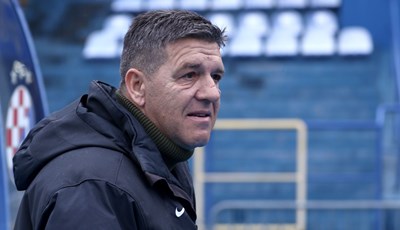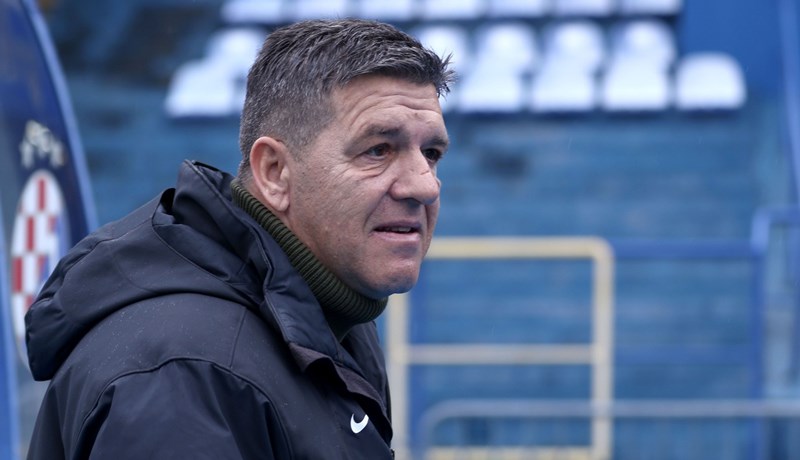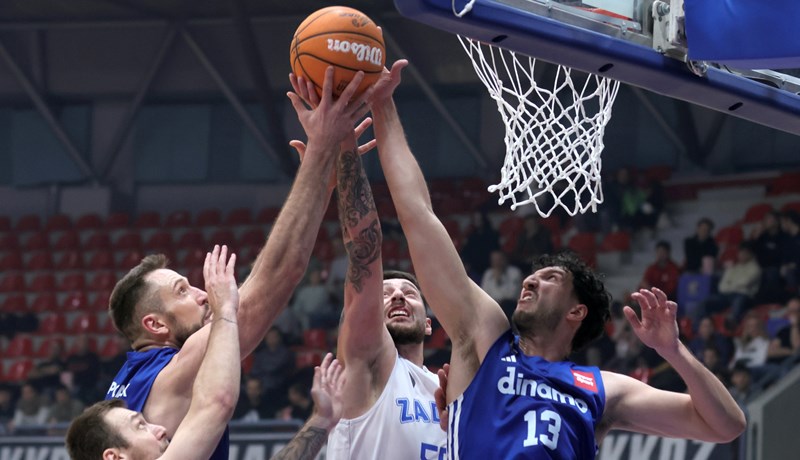ISIS/ISIL
Twitter, FB, gdje drugo.
Samo treba vremena da pronadjes relevantne profile, posebno na Twitteru, ali nije tesko. Svaka ta milicija ima svoj nalog, imaju svoje YT kanale, slicno je i sa sirijskom vojskom, imas ANNA vijesti, RT, Vice, prorebelske portale itd.
Ne bih preporucio domace uslovno receno domace, tipa vijestiummeta i slicne vehabijske portale. Oni lazu "kad zinu".
I Advance je jedno vrijeme bio na tragu desavanja, ali dosta su se pokvarili u zadnje vrijeme, ne citam ih odavno ali mislim da su previse zaglajzali u nekakve teorije zavjera i slicno.
Samo treba vremena da pronadjes relevantne profile, posebno na Twitteru, ali nije tesko. Svaka ta milicija ima svoj nalog, imaju svoje YT kanale, slicno je i sa sirijskom vojskom, imas ANNA vijesti, RT, Vice, prorebelske portale itd.
Ne bih preporucio domace uslovno receno domace, tipa vijestiummeta i slicne vehabijske portale. Oni lazu "kad zinu".
I Advance je jedno vrijeme bio na tragu desavanja, ali dosta su se pokvarili u zadnje vrijeme, ne citam ih odavno ali mislim da su previse zaglajzali u nekakve teorije zavjera i slicno.
evo malo apdejta iz Kobanija:

Bitka za Kobani postala je izuzetno simbolična - podsjetimo, upravo nakon ISIL-ovog napada na Kobani u rat protiv terorista na teritoriju Sirije uključio se i SAD sa svojim regionalnim saveznicima. No, pojedini američki saveznici odbili su uključiti se - u prvom redu Turska.
Turska je mogla najviše pripomoći u obrani grada Kobani, no nije te se ispostavlja da aktualne turske vlasti imaju toliki animozitet prema sirijskim Kurdima da im je ISIL na granici očito "manje zlo".
Ipak, nakon pritiska iz Washingtona, Ankara je dopustila da preko njenog teritorija u Kobani uđu kurdski borci iz Iraka, s prostora autonomne pokrajine Irački Kurdistan.
I uz brojne američke zračne napade, kao i sirijske, ISIL i dalje prijeti kurdskom gradu na sjeveru zemlje. U zadnjem sukobu, tijekom jučerašnjeg dana, u Kobaniju je ubijen 41 pripadnik ISIL-a, ističu izvori iz opozicijske organizacije SOHR.
U izvještaju se također navodi kako su Kurdi izgubili 7 boraca, a u sukobima je ubijeno i dvoje civila.
Iz američke vojske ističu kako su od ponedjeljka izveli 10 zračnih napada u Siriji, većinom na prostoru Kobanija.
Prema lokalnim izvorima SOHR-a, Kurdi u Kobaniju trenutačno kontroliraju 80% grada. No, sve dok ISIL ima uporište u samom gradu, opasnost po Kurde nije prošla, naročito kada se uzme u obzir činjenica da ISIL vrlo brzo obnavlja svoje redove, što ne iznenađuje pošto velik broj novih boraca stiže iz cijelog svijeta, privučeni ekstremističkom ideologijom koju ISIL propagira.
No, u isto vrijeme Kurdi također imaju svoje simpatizere i do sada je određen broj boraca stigao iz raznih dijelova svijeta kako bi se borili na njihovoj strani protiv ISIL-a.
I dalje se vodi žestoka bitka za Kobani: ubijeno više desetaka ISIL-ovaca, Kurdi kontroliraju 80% grada
F.E.
vrijeme objave: Srijeda - 07. 01. 2015 | 11:30

FOTO: Ljevičarski borci iz Turske u Kobaniju, bore se uz Kurde protiv ISIL-a
Već više od tri mjeseca vodi se žestoka bitka za kurdski grad Kobani na sjeveru Sirije. Lokalne obrambene kurdske jedinice suočavaju se sa stalnim napadima militanata iz terorističke skupine ISIL.Bitka za Kobani postala je izuzetno simbolična - podsjetimo, upravo nakon ISIL-ovog napada na Kobani u rat protiv terorista na teritoriju Sirije uključio se i SAD sa svojim regionalnim saveznicima. No, pojedini američki saveznici odbili su uključiti se - u prvom redu Turska.
Turska je mogla najviše pripomoći u obrani grada Kobani, no nije te se ispostavlja da aktualne turske vlasti imaju toliki animozitet prema sirijskim Kurdima da im je ISIL na granici očito "manje zlo".
Ipak, nakon pritiska iz Washingtona, Ankara je dopustila da preko njenog teritorija u Kobani uđu kurdski borci iz Iraka, s prostora autonomne pokrajine Irački Kurdistan.
I uz brojne američke zračne napade, kao i sirijske, ISIL i dalje prijeti kurdskom gradu na sjeveru zemlje. U zadnjem sukobu, tijekom jučerašnjeg dana, u Kobaniju je ubijen 41 pripadnik ISIL-a, ističu izvori iz opozicijske organizacije SOHR.
U izvještaju se također navodi kako su Kurdi izgubili 7 boraca, a u sukobima je ubijeno i dvoje civila.
Iz američke vojske ističu kako su od ponedjeljka izveli 10 zračnih napada u Siriji, većinom na prostoru Kobanija.
Prema lokalnim izvorima SOHR-a, Kurdi u Kobaniju trenutačno kontroliraju 80% grada. No, sve dok ISIL ima uporište u samom gradu, opasnost po Kurde nije prošla, naročito kada se uzme u obzir činjenica da ISIL vrlo brzo obnavlja svoje redove, što ne iznenađuje pošto velik broj novih boraca stiže iz cijelog svijeta, privučeni ekstremističkom ideologijom koju ISIL propagira.
No, u isto vrijeme Kurdi također imaju svoje simpatizere i do sada je određen broj boraca stigao iz raznih dijelova svijeta kako bi se borili na njihovoj strani protiv ISIL-a.
i jedan zanimljiv tekst o navodnom naoružavanju ISILa od strane SADa:
Brandon Turbeville
Activist Post
As the “convenient” and “accidental” airdrops of weapons and supplies by the US and NATO into the hands of ISIS and al-Qaeda jihadists fighting inside both Syria and Iraq begin to draw more attention throughout largely alternative media outlets, such convenient mistakes are also being questioned by national governments, particularly those who may be in the crosshairs of NATO in the very near future.
Individuals who have come to question the nature of the allegedly accidental air drops are legion, but one of the more recent and high profile skeptics is the Commander of Iran’s Basij Force, Brigadier General Mohammed Reza Naqdi.
In an address to a group of Basij forces on January 5, Naqdi stated that “The US directly supports the ISIL in Iraq and the US planes drop the needed aids and weapons for ISIL in Iraq …” In addition, he stated that the US Embassy in Baghdad is the command center for ISIL and other “takfiri” militants.
Indeed, while the United States military portrays the receipt of weapons and supplies by ISIS as entirely accidental, Naqdi presents the situation as quite the opposite. Contradicting the propaganda and stated aims of the US military, Naqdi stated that the Iraqi forces have managed to retrieve aid that was actually intended for ISIS fighters, not the other way around.
Naqdi, however, is merely the latest official in the region who has suggested that the U.S. “assault” on ISIS is half-hearted at best. Iraqi Member of Parliament Majid al-Gharawi recently stated that all information available “pointed out that US planes are supplying ISIL organization, not only in Salahuddin province, but also other provinces,” according to Iraq TradeLink.
He also stated that the United States is “not serious in fighting against the ISIL organization, because they have the technological power to determine the presence of ISIL gunmen and destroy them in one month [but have not done so].”
Gharawi suggested that the “the US is trying to expand the time of the war against the ISIL to get guarantees from the Iraqi government to have its bases in Mosul and Anbar provinces.”
It is important to mention that, according to FARS News, the Iraqi Parliamentary Security and Defense Commission revealed that a US plane did indeed supply ISIS with arms and ammunition in the Salahuddin province in Iraq, yet that revelation has received little to no coverage in the West.
In late December, 2014, yet another Iraqi lawmaker, Nahlah al-Hababi, questioned the motives and commitment of the US and its anti-ISIL coalition and claimed that the terrorist groups are actually receiving a large amount of aid dropped by unidentified aircraft.
Hababi is quoted by FARS News Agency as stating “The international coalition is not serious about air strikes on ISIL terrorists and is even seeking to take out the popular Basij (voluntary) forces from the battlefield against the Takfiris so that the problem with ISIL remains unsolved in the near future.”
 “Basij” is a term that largely means “volunteer” as in volunteer forces.
“Basij” is a term that largely means “volunteer” as in volunteer forces.
She also was quoted as saying that “The ISIL terrorists are still receiving aids from unidentified fighter jets in Iraq and Syria.”
FARS also quotes Hababi as pointing out that the airstrikes launched by NATO are only launched in areas where Kurdish Peshmerga forces are fighting, while such strikes launched in other areas are “not so precise.” The suggestion, of course, is that the “coalition” has a vested interest in supporting the Kurdish forces while, at the same time, supporting ISIS in the process of weakening Syria’s Assad, Iraqi nationalism, and presumably, Iranian influence. Clearly, Hababi is not far off from the reality of the situation.
As FARS writes,
In October, 2014, “coalition” forces dropped a number of aid supplies and ammunition allegedly intended for the Iraqi people and anti-Isis forces on the ground into territory controlled by ISIS. The “mistake” was confirmed by Iraqi officials and parliamentarians.
Only in the West, it seems, does the general public look upon the so-called mistakes as anything but a sloppy excuse to re-arm NATO’s terrorist mercenaries in order to reinvigorate their proxy war.
Middle East Officials Question ''Convenient Mistakes'' Of US Airdrops To Al-Qaeda
 |
| Anthony Freda Art |
Activist Post
As the “convenient” and “accidental” airdrops of weapons and supplies by the US and NATO into the hands of ISIS and al-Qaeda jihadists fighting inside both Syria and Iraq begin to draw more attention throughout largely alternative media outlets, such convenient mistakes are also being questioned by national governments, particularly those who may be in the crosshairs of NATO in the very near future.
Individuals who have come to question the nature of the allegedly accidental air drops are legion, but one of the more recent and high profile skeptics is the Commander of Iran’s Basij Force, Brigadier General Mohammed Reza Naqdi.
In an address to a group of Basij forces on January 5, Naqdi stated that “The US directly supports the ISIL in Iraq and the US planes drop the needed aids and weapons for ISIL in Iraq …” In addition, he stated that the US Embassy in Baghdad is the command center for ISIL and other “takfiri” militants.
Indeed, while the United States military portrays the receipt of weapons and supplies by ISIS as entirely accidental, Naqdi presents the situation as quite the opposite. Contradicting the propaganda and stated aims of the US military, Naqdi stated that the Iraqi forces have managed to retrieve aid that was actually intended for ISIS fighters, not the other way around.
Naqdi, however, is merely the latest official in the region who has suggested that the U.S. “assault” on ISIS is half-hearted at best. Iraqi Member of Parliament Majid al-Gharawi recently stated that all information available “pointed out that US planes are supplying ISIL organization, not only in Salahuddin province, but also other provinces,” according to Iraq TradeLink.
Gharawi suggested that the “the US is trying to expand the time of the war against the ISIL to get guarantees from the Iraqi government to have its bases in Mosul and Anbar provinces.”
It is important to mention that, according to FARS News, the Iraqi Parliamentary Security and Defense Commission revealed that a US plane did indeed supply ISIS with arms and ammunition in the Salahuddin province in Iraq, yet that revelation has received little to no coverage in the West.
In late December, 2014, yet another Iraqi lawmaker, Nahlah al-Hababi, questioned the motives and commitment of the US and its anti-ISIL coalition and claimed that the terrorist groups are actually receiving a large amount of aid dropped by unidentified aircraft.
Hababi is quoted by FARS News Agency as stating “The international coalition is not serious about air strikes on ISIL terrorists and is even seeking to take out the popular Basij (voluntary) forces from the battlefield against the Takfiris so that the problem with ISIL remains unsolved in the near future.”
 “Basij” is a term that largely means “volunteer” as in volunteer forces.
“Basij” is a term that largely means “volunteer” as in volunteer forces.She also was quoted as saying that “The ISIL terrorists are still receiving aids from unidentified fighter jets in Iraq and Syria.”
FARS also quotes Hababi as pointing out that the airstrikes launched by NATO are only launched in areas where Kurdish Peshmerga forces are fighting, while such strikes launched in other areas are “not so precise.” The suggestion, of course, is that the “coalition” has a vested interest in supporting the Kurdish forces while, at the same time, supporting ISIS in the process of weakening Syria’s Assad, Iraqi nationalism, and presumably, Iranian influence. Clearly, Hababi is not far off from the reality of the situation.
As FARS writes,
In late December, the US-led coalition dropped aids to the Takfiri militants in an area North of Baghdad.
Field sources in Iraq told al-Manar that the international coalition airplanes dropped aids to the terrorist militants in Balad, an area which lies in Salahuddin province North of Baghdad.
In October, a high-ranking Iranian commander also slammed the US for providing aid supplies to ISIL, adding that the US claims that the weapons were mistakenly airdropped to ISIL were untrue.
“The US and the so-called anti-ISIL coalition claim that they have launched a campaign against this terrorist and criminal group – while supplying them with weapons, food and medicine in Jalawla region (a town in Diyala Governorate, Iraq). This explicitly displays the falsity of the coalition’s and the US’ claims,” Deputy Chief of Staff of the Iranian Armed Forces Brigadier General Massoud Jazayeri said.
The US claimed that it had airdropped weapons and medical aid to Kurdish fighters confronting the ISIL in Kobani, near the Turkish border in Northern Syria.
The US Defense Department said that it had airdropped 28 bundles of weapons and supplies, but one of them did not make it into the hands of the Kurdish fighters.
Video footage later showed that some of the weapons that the US airdropped were taken by ISIL militants.The question of such “convenient accidents” are by no means unique to the Middle Eastern, Iraqi, or Iranian press reports, however. These types of “mistakes” happen on a seemingly regular basis in areas where the United States is allegedly fighting the very terrorist organization it created.
In October, 2014, “coalition” forces dropped a number of aid supplies and ammunition allegedly intended for the Iraqi people and anti-Isis forces on the ground into territory controlled by ISIS. The “mistake” was confirmed by Iraqi officials and parliamentarians.
Only in the West, it seems, does the general public look upon the so-called mistakes as anything but a sloppy excuse to re-arm NATO’s terrorist mercenaries in order to reinvigorate their proxy war.
ISIL je na Kobaniju dozivio takve gubitke, da se to reflektira na ostatak sirijsko-iracke bojisnice.
Kurdi su ih porazili na planini Sindjar, deblokirali opkoljene Jezide to su koliko sam ja razumio Kurdi odnosno jedno pleme kurdsko ili se varam, sa sirijske strane granice sirijska vojska u Hasakah i Qamishliju (tamo popunjena uglavnom lokalnim krscanima, asircima) i lokalni Kurdi osvojili niz sela od strane ISIL-a a izgleda i iracka vojska pokazuje znake zivota tamo oko Tigrisa i Eufrata.
U Deir ez Zoiru ISIL dozivio veliki poraz u ofanzivi na lokalnu zracnu luku, vec spominjani Issam Zahredine, zapovjednik sirijaca u Zoiru i njihova ratna legenda, sklopio savez sa lokalnim sunitskim plemenom Sheitat pa su njegova vec cuvena 104 brigada republikanske garde (uglavnom Druzi iz Suwaide i lokalci iz Zoira) i Sheitat ratnici, nabubali ISIlovce.. bilo je snimaka, bukvalno puni kamioni leseva defiliraju ulicama Deir Ez Zoira, narod pozdravlja mase aplaudira, pljuju leseve pobijenih ISILovaca, ludnica.
USA i dalje baca padobrane sa oruzjem, sadrzaj i dalje "slucajno" (svaki drugi valjda) zavresi u rukama ISIL-a, na istoku nista novo.
Kurdi su ih porazili na planini Sindjar, deblokirali opkoljene Jezide to su koliko sam ja razumio Kurdi odnosno jedno pleme kurdsko ili se varam, sa sirijske strane granice sirijska vojska u Hasakah i Qamishliju (tamo popunjena uglavnom lokalnim krscanima, asircima) i lokalni Kurdi osvojili niz sela od strane ISIL-a a izgleda i iracka vojska pokazuje znake zivota tamo oko Tigrisa i Eufrata.
U Deir ez Zoiru ISIL dozivio veliki poraz u ofanzivi na lokalnu zracnu luku, vec spominjani Issam Zahredine, zapovjednik sirijaca u Zoiru i njihova ratna legenda, sklopio savez sa lokalnim sunitskim plemenom Sheitat pa su njegova vec cuvena 104 brigada republikanske garde (uglavnom Druzi iz Suwaide i lokalci iz Zoira) i Sheitat ratnici, nabubali ISIlovce.. bilo je snimaka, bukvalno puni kamioni leseva defiliraju ulicama Deir Ez Zoira, narod pozdravlja mase aplaudira, pljuju leseve pobijenih ISILovaca, ludnica.
USA i dalje baca padobrane sa oruzjem, sadrzaj i dalje "slucajno" (svaki drugi valjda) zavresi u rukama ISIL-a, na istoku nista novo.
još malo o američkoj ulozi u ovom kaosu:
The fantasy of an Iran-US partnership |
||||||
Iran remains profoundly skeptical of US intentions and professed determination to degrade and destroy ISIL. Last updated: 06 Jan 2015 10:06
|
||||||
|
||||||
    |
||||||

Iranians do not buy the argument that a repentant US is waging a real war against ISIL, writes Marandi [Reuters]
|
||||||
|
Western pundits who blithely assert that the Islamic Republic of Iran can or will cooperate with the United States in Iraq against ISIL ignore a basic problem; how can the US be a serious partner in fighting a terrorist movement that Washington may have played a critical role in creating? When US Vice-President Joe Biden told an American university audience in October that Turkey, the UAE and Saudi Arabia are responsible for arming al-Nusra, ISIL, and other al-Qaeda-rooted extremists in Syria and that there is no "moderate middle" in the country, there was (as most non-Americans expected) little coverage of this stunning admission in the US mainstream media. Indeed, what little coverage there was focused on Biden's subsequent apologies to Turkish, Emirati, and Saudi leaders for having made such comments in the first place. Predictably, there was no follow-up reporting in the New York Times reminding Americans that the US is itself complicit in funding and arming extremists in Syria. CIA producing weapons In early 2013, the newspaper reported what many in the region already knew; that since the beginning of 2012, the CIA had been deeply involved in procuring weapons for anti-Assad forces, airlifting arms to Jordanian and Turkish airports, and "vetting" rebel commanders - all to help US allies "support the lethal side of the civil war". Other reports pointed out that these shipments were actually paid for by US allies, at the bidding of the Obama administration.
But, after the Biden revelation, the so-called "newspaper of record" made no reference to how the US, in violation of international law, helped to facilitate the Syrian civil war - and, in the process, to enable the rise of ISIL. Western-backed extremism is neither a new nor regionally-bound concept. Whether it is the "Contra" rebels in Nicaragua or al-Qaeda-like groups in Afghanistan, the objective has always been to achieve strategic objectives through the infliction of mass suffering - for, in the "free and civilised world" of the US and its allies, the utopian end too often justifies the Mephistophelean means. More recently, an important footnote to the Libyan civil war was the involvement of Abdul Hakim Belhaj, previously the leader of the Libyan Islamic Fighting Group as well as an al-Qaeda member. He was one of many Libyan militants influenced by a takfiri (apostate) ideology; the groups with which he was affiliated were designated as terrorist organisations by the US State Department. Nevertheless, he, along with other like-minded militants, became central components in the efforts of western and Arab-backed anti-Gaddafi forces to capture Tripoli, the Libyan capital. Western willingness to cooperate with al-Qaeda (or "former" al-Qaeda) militants in Libya was a major turning point. Even the subsequent death of the US ambassador to Libya did not change US policy in this regard. Belhaj became the representative of Libya's interim president after Gaddafi's overthrow (before the complete ruin of the country). More importantly, the willingness of the US and European and "Middle Eastern" allies to embrace al-Qaeda-like militants took US and western foreign policy in the region back to what it had been before the September 11, 2001 attacks - a policy of cooperation with violent extremists to undermine regional actors the West considers problematic. Monster they created This policy quickly expanded from Libya to Syria and the repercussions are being felt today in countries like Pakistan, Nigeria, Australia, and China. After Gaddafi's overthrow, Turkey - a NATO member - allegedly helped Belhaj to meet with leaders of the so-called "Free Syrian Army" in Istanbul and along the Syrian-Turkish border. In the meetings the former al-Qaeda leader discussed supporting the FSA with money, weapons, and fighters, at a time when the CIA was a major conduit for the transfer of weapons from Libya to Syria. While Belhaj was just one of many al-Qaeda affiliates involved in violent anti-government campaigns in both Libya and Syria, his openly acknowledged role underscores how the supposedly "moderate" FSA was, from early on in the Syrian civil war, as Iran repeatedly warned, deeply associated with and infiltrated by extremists.
Over time, the problem grew so large with ISIL's rise that it became impossible to hide the monster that the US and its allies had created. And so, Washington launched yet another chapter in its never-ending post-9/11 "war on terror". Notwithstanding Washington's professed determination to degrade and, ultimately, to destroy ISIL, Iran remains profoundly skeptical of US intentions. Even after dramatic gains by ISIL in Iraq and the formation of a US-led coalition of the guilty to fight it, this coalition has, on average, carried out just nine airstrikes per day in both Iraq and Syria. In comparison, western reports indicate that, in the same period, the Syrian air force alone has at times carried out up to 200 strikes in 36 hours. Even as these largely inconsequential US-led airstrikes are carried out in Iraq and Syria, some regional players continue to provide extensive logistical support to ISIL; along Syria's borders with Jordan and the Israeli regime, the Nusra Front continues to collaborate with other extremist militias backed by foreign (including western) powers. In light of these realities, Iranians - who have been indispensable in preventing the fall of Damascus, Baghdad, Aleppo, and Erbil - simply do not buy the argument that a repentant US is now waging a real war against ISIL, the Nusra Front, and other extremist organisations in Iraq and Syria. Rather, Iranians see the evidence as pointing to a complex (yet foolish) policy undertaken by Washington and its allies for the purpose of "containing" the Islamic Republic. What, then, would be the justification - under such circumstances and as Iranian allies are successfully pushing back extremists in Iraq and Syria - for the Islamic Republic to cooperate with the US in Iraq? No matter how much some may try to tempt it, Iran will not play Faust to America's Mephistopheles. |
||||||
Pripadnici Sheitat plemena paradiraju po Zoru sa lesevima pobijenih ISILovaca.
covjece, ko trofeji po automobilima. Ludog li svita
https://www.youtube.com/watch?v=K1qcDlFBvsY
covjece, ko trofeji po automobilima. Ludog li svita
https://www.youtube.com/watch?v=K1qcDlFBvsY
Real Madrid barem privremeno na vrhu, Mbappe donio pobjedu kod Villarreala
Čabraja: 'Kada ne zabijete takve dvije prilike, jako teško ćete se s gostovanja vratiti s bodovima'
Fabregas: 'Baturina zaslužuje sve ovo i treba samo nastaviti bez posustajanja'
Zadar glatko slavio kod Dinama, Dubrava odnijela pobjedu iz Šibenika
- Najnovije
- Najčitanije


Alcaraz i Sabalenka bez izgubljenog seta do četvrtfinala Australian Opena
1 sat•Tenis

Bruinsi dobili veliku bitku s Canadiensima, Sabresi došli do devete uzastopne pobjede
1 sat•Zimski sportovi

Osvježeni i pojačani Osijek traži što brži bijeg s dna, Dinamo nastavlja utrku za titulu
2 sata•Nogomet

Čabraja: 'Kada ne zabijete takve dvije prilike, jako teško ćete se s gostovanja vratiti s bodovima'
3 sata•Nogomet

Knicksi slavili u Philadelphiji, Huerter tricom donio pobjedu Bullsima, Dončić se vratio i slavio u Dallasu
4 sata•Košarka

Ni odlični Luka Božić nije pomogao Granadi doći do pobjede
11 sati•Košarka

Real Madrid barem privremeno na vrhu, Mbappe donio pobjedu kod Villarreala
11 sati•Nogomet

Pogodak i asistencija odličnog Baturine, Como razbio Torino
19 sati•Nogomet

Kronologija: Majstorija Dantasa za povratak Riječana iz minusa i bod s igračem manje
17 sati•Nogomet

Osvježeni i pojačani Osijek traži što brži bijeg s dna, Dinamo nastavlja utrku za titulu
2 sata•Nogomet

Tučnjave na terenu, brutalni prekršaji i verbalni ratovi: desetljeća netrpeljivosti od Highburya do Old Trafforda
20 sati•Nogomet

Kronologija: Vukovar već u četvrtoj minuti do vodstva, Lokomotiva u drugom dijelu do preokreta
19 sati•Nogomet

Dvoboj španjolskih predstavnika iz Lige prvaka, Real Madrid može barem privremeno na vrh
20 sati•Nogomet

Kronologija: Hrvatska golovima Kusture do boda protiv Francuske
3 dana•Nogomet

Italija bolja od Hrvatske, ništa od prolaza u polufinale
3 dana•Vodeni sportovi





